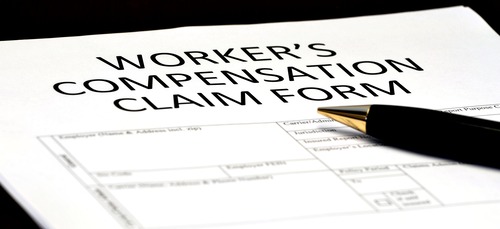Work Comp Cases In Miami: Chances of a Settlement
Work comp offers financial and medical benefits to employees who are hurt on the job or become ill while working and financial benefits to the survivors of employees killed in the line of duty. Benefits are offered regardless of responsibility and serve as the sole remedy for employment diseases, injuries, and fatalities. However, claiming benefits will require you to hire a workers’ compensation attorney in Miami to be able to present your case professionally.
Types of work comp settlements in Miami
In Florida, settlement agreements come in a variety of forms based on the rights you’re renouncing and how you’ll be compensated:
Discharge of duty, total or partial
In most cases, the insurance provider will request that you accept a full payout, which implies that you are waiving your claim to any additional payments for your injuries under Florida law’s workers’ compensation system. — including any ailments and wounds that happened when you were employed by your employer before the settlement but haven’t yet been categorized as being relevant to your job (work-related illness or a repetitive stress injury, for example).
You might be able to reach an agreement on a smaller scale where you receive payments with incentives in return (benefits for lifelong incapacity, for example). However, your medical costs are still covered by the insurance company. These kinds of settlements do not frequently occur, though.
Structured versus lump-sum payments
The majority of settlements pay you in one single sum. The insurance provider may, however, agree in some circumstances to make the payment over time in installments. In situations with severe injuries, structured settlements are widely used because they can assist badly injured workers in managing their settlement funds and covering sustained care costs.
When these two things are coupled, a full-and-final release with a lump sum is the most typical settlement in Florida.
Miami’s applicants guide to work comp settlements
Settlements in instances involving workers’ compensation payments differ from those in other injury claims. Workers’ compensation settlements only pay for expenses that could be collected under the workers’ comp system, unlike other injury claims, which let a sufferer recover all accident-related expenses.
These kinds of settlements don’t allow for the recovery of damages for lost earning capacity, employer or insurance negligence, property losses, or the suffering of the victim.
However, payments made through workers’ compensation settlements may go toward:
Future medical costs
Insurance companies typically base settlement sums on what a claimant could have received in medical and wage benefits through the workers’ compensation system for the injury. Therefore, settlement offers are frequently offered to claimants who need continuing medical care, are unable to find employment, or have sustained long-term or permanent disabilities due to their injuries.
Permanent disability compensation
A worker who has been harmed may be entitled to ongoing disability compensation from insurers. In certain situations, insurers can choose to award lump sums to claimants rather than continue to pay for lifelong impairment.
Payments that are past due
Any underpaid temporary disability benefits, unpaid medical expenses, or the resolution of any other financial concerns relating to the damage may be demanded by an insurer as part of a settlement. In addition, if the company failed to provide benefits on schedule, the insurer might be required to pay fines.
When can a person Resolve his Miami Work Comp Claim?
You can resolve your claim anytime if you have a workers’ compensation attorney. Florida law has specific guidelines for agreeing to a final and complete payment in one single sum if you don’t have legal representation. You can only consent to this kind of settlement without legal representation if a judge decides that there is a valid dispute about whether you are entitled to benefits after the insurance company refused your workers’ compensation claim. Or, if your doctor says that your health is stable, and it’s doubtful that it will improve any further.
However, it’s usually advisable to hold off on concluding your case until you reach MMI. You’ll be accountable for paying for any unanticipated medical care you require after a settlement because the insurance company normally ceases paying your medical bills. Furthermore, throughout this time of rehabilitation, it won’t be possible to tell if your job accident will result in any long-term medical problems or a loss of function. It is thus challenging to estimate how much money you should ask for in a settlement.
Settlement of workers’ comp cases in Miami
Settlements for work comp are entirely voluntary under Florida law. No one can compel the other to make a deal. Settlements are typically discussed by the parties at the mediation meeting, although they can happen at any time. The amount an employer or carrier will pay to resolve the claim cannot be calculated using a formula.
The carrier bases its evaluation of the settlement on an estimate of the cost of the litigation if it does not settle going forward. In the same way, the claimant bases his settlement offer on an estimate of the compensation money advantages and medical benefits he would receive going forward if he doesn’t settle. The parties typically engage in discussions before reaching an agreement on a settlement amount.
The settlement may take longer without legal representation for the claimant because the judge overseeing work comp claims will need to hear the settlement documents in person. The parties do not have to appear in person at a live settlement hearing if counsel represents the claimant.
The employee typically has to sign a settlement release outlining the conditions of the deal and recognizing that they are waiving all workers’ compensation rights, an affidavit attesting to their understanding of the settlement, and sometimes other paperwork, depending on the settlement.
Normally, the employer/carrier will not resolve the work comp case unless the claimant agrees to resolve all potential legal claims against the employer and carrier, such as claims for wrongful termination of employment, employment discrimination, wrongful payment of overtime, etc.
According to Florida law, the claimant must use settlement funds to cover his legal expenses. The Florida Workers’ Compensation Law’s statutory guideline attorney charge will determine the attorney fee. The applicant will be required to use his share of the settlement funds to pay his case costs and attorney fees. In addition to any legal fees his attorney may receive from the employer/carrier or the claimant as a consequence of achieving benefits other than the settlement, the claimant pays his attorney’s fees out of the settlement.
No party may withdraw from a settlement agreement once the other party makes and accepts an offer. Even if the settlement calls for signing additional agreements, this can still be the case.
To learn more on how to claim a worker’s comp settlement, contact Miami injury attorneys today.






